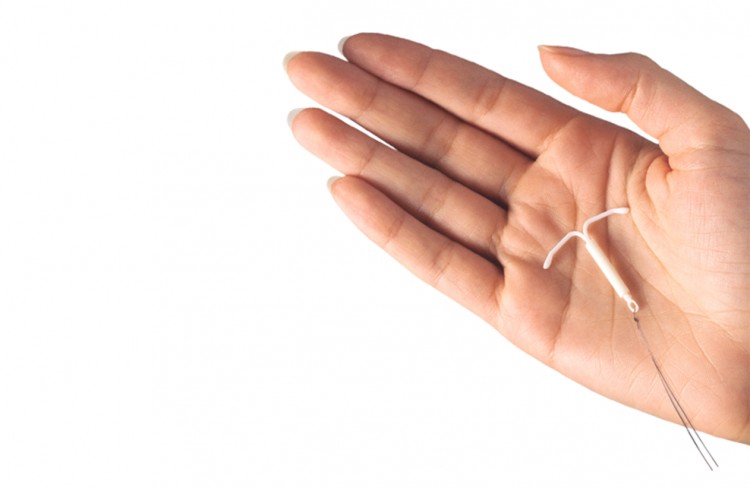SLM asked
Mirena's website states that medicines that affect liver metabolizing enzymes, such as CYP3A4, can affect your Mirena IUD's effectiveness. I need to know whether or not Cefdinir is a medicine that can affect that this. Cefdinir does not come up on any of the lists of antibiotics commonly known to affect birth control. My concern is that those lists are made specifically for users of the pill, who rely on Ethinyl Estradiol. Mirena uses levonorgestrel. I'm definitely no pharmacist, and I don't even really know how the two differ. I last had sex on Friday, I went to the doctor Saturday and was prescribed Cefdinir. Might I become pregnant? Do I need to take extra precautions as I take or after I take Cefdinir? Also, can you tell me - is Mirena's effectiveness solely couched on its progestin? My understanding was that it acts in several ways, from being a physical barrier, to thinning the uterine lining, thickening cervical mucus, and preventing ovulation? If my uterine lining has apparently been thinned to the point that I do not have periods anymore, do I run a substantial risk of pregnancy even if the hormone component of the Mirena's moderately affected by Cefdinir?
Answer
 There is a considerable amount of controversy regarding whether antibiotics reduce the efficacy of oral contraceptives. Most studies show that hormone levels are NOT lowered by a majority of antibiotics. However, one class of antibiotics, the "rifamycin" class, has been shown to greatly reduce hormone levels in some situations.
There is a considerable amount of controversy regarding whether antibiotics reduce the efficacy of oral contraceptives. Most studies show that hormone levels are NOT lowered by a majority of antibiotics. However, one class of antibiotics, the "rifamycin" class, has been shown to greatly reduce hormone levels in some situations.
Rifamycin antibiotics are "enzyme inducers", meaning they accelerate metabolism (specifically they CYP3A4 liver enzyme), potentially leading to an overall decrease in hormone levels. This could potentially result in contraceptive failure. In fact, there is concern with all medications that are potential enzyme inducers in regard to how they could potentially affect the efficacy of birth control pills.
In addition to enzyme inducing concerns, it is thought that some antibiotics could stimulate metabolism of the hormones in oral birth control pills due to changes in gastrointestinal bacteria flora.
As certain antibiotics and enzyme inducing medications can interact with oral birth control pills, we are naturally concerned with whether or not these interacting medications can affect non-oral hormonal contraception like Mirena, an intrauterine device that deliverers small, consistent daily doses of the progestin, levonorgestrel.
Mirena - Antibiotic Interaction
Nearly all sources, as well as hormonal contraceptive guidelines, indicate that antibiotics and enzyme inducing medications do not significantly affect Mirena and should not decrease contraceptive efficacy.
The drug interaction between Mirena and enzyme inducing medications is listed in the prescribing information because it is well known that enzyme inducing medications affect the progestin in Mirena, levonorgestrel, but only when taken by mouth. However, due to the mechanism of action of Mirena, we can be relatively confident that the efficacy of intrauterine devices such as Mirena will not be affected.
Mirena's contraceptive efficacy is thought to be due to a variety of mechanisms and can be attributed the physical intrauterine device and the hormone (levonorgestrel) released by the device. Levonorgestrel specifically works by:
- Suppression of the endometrium (thinning and disallowing a fertilized egg from implanting).
- Increasing the amount and viscosity of cervical mucus.
- Reducing fallopian tubal motility (of an egg or sperm).
It needs to be pointed out that the levonorgestrel is thought to have mostly "local" effects on the uterus, meaning that a negligible amount is absorbed systemically, unlike oral hormonal contraceptives. Illustrating this point is the fact that nearly 60% of women continue to ovulate after insertion of Mirena. The main contraceptive action of oral contraceptives is the suppression of ovulation. Mirena's contraceptive efficacy does not rely on ovulation suppression.
In addition to the contraceptive actions of levonorgestrel, the physical intrauterine component, a "T-shaped" polyethylene device, acts as mechanical contraceptive, and has pre-fertilization and post-fertilization effects. The exact mechanical mechanism of action of IUDs isn't know but they are thought to affect sperm migration as well as alter the viability or speed of the ovum (egg cell).
Going back to the drug interaction between oral contraceptives and enzyme inducing medications, the progesterone in Mirena is working locally (on the uterus, Fallopian tubes etc...) so systemic medications are very unlikely to cause significant changes to the hormone levels. Also, as stated above, the mechanical contraceptive effects of Mirena are unaffected by enzymes inducing drugs and antibiotics.
Conclusion
To summarize:
- Mirena's contraceptive efficacy is attributed to "local" progesterone effects and the mechanical effects of the physical IUD.
- Enzyme inducing and antibiotic medications do not appear to affect the efficacy of Mirena due to the mechanism of action of Mirena.
Based on the available information, you can be relatively confident that drug inducing medications and antibiotics do not decrease the contraceptive efficacy of Mirena.




